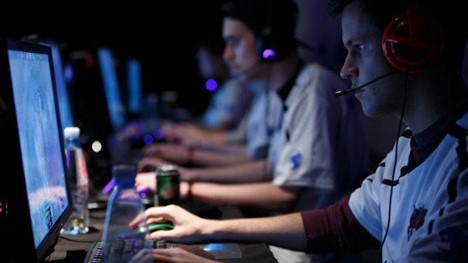
Gaming was once thought to be for fun, but it is increasingly being acknowledged for its significant influence on mental health. Far from being mere leisure, gaming has shown to be an effective instrument for improving well-being and developing beneficial mental health outcomes.
With technological improvements and the widespread availability of gaming platforms, more people are switching to gaming for entertainment. Beyond its entertainment appeal, gaming has significant potential as a therapeutic tool for improving mental health.
The Therapeutic Potential of Gaming
Contrary to common misconceptions, gaming offers far more than just entertainment. According to research, playing video games can improve a variety of psychological conditions, including stress reduction, mood control, and cognitive enhancement. For many people, gaming is a source of stress alleviation, giving a brief respite from the stresses of everyday life.
Stress Reduction
One of the most notable benefits of gaming is its ability to alleviate stress and promote relaxation. Immersive gaming experiences transport players to captivating virtual worlds, allowing them to temporarily detach from real-life stressors.
Whether exploring vast open worlds, solving puzzles, engaging in multiplayer battles, or even participating in online betting, gaming offers a welcome reprieve from the demands of daily life. This temporary escape not only provides a mental break but also enables individuals to recharge and rejuvenate, ultimately contributing to overall well-being and stress management.
Mood Regulation
Gaming has also been linked to improved mood regulation and enhanced emotional well-being. Video games can provoke a wide spectrum of feelings, from excitement and joy to empathy and wonder, thanks to interactive narrative and intriguing gameplay mechanisms. Individuals suffering from mood disorders or emotional issues may find gaming to be a beneficial medium for self-expression and emotional catharsis.
Social Connection
In addition to its benefits, gaming fosters social connection and community engagement. Multiplayer online games allow users to connect with people from all over the world, forging relationships and friendships that cross geographical barriers.
For people who feel alienated or lonely, gaming communities provide a sense of belonging and camaraderie, encouraging social support and interpersonal interactions.
Cognitive Stimulation
Gaming is not only enjoyable but also intellectually stimulating. Many video games require strategic thinking, problem-solving skills, and quick decision-making, all of which contribute to cognitive development and skill acquisition. From complex puzzles to fast-paced action sequences, gaming challenges players to think critically and adapt to ever-changing situations, enhancing cognitive flexibility and mental acuity.
Educational and Therapeutic Applications
Beyond its recreational value, gaming is increasingly being used in educational and therapeutic contexts. Gamification techniques are being used to make learning more interesting and participatory, and serious games are being created to target particular mental health issues such as anxiety, depression, and PTSD.
By incorporating gaming into therapy sessions, mental health practitioners may provide clients with immersive experiences that encourage healing and self-discovery.
Conclusion
Gaming, including online betting, has enormous potential for improving mental health. Far from being a solitary activity, gaming has the potential to bring people together, develop social ties, and boost emotional well-being. As you continue to discover the therapeutic advantages of gaming, it is critical to realize its function in fostering mental well-being and assisting people on their path to improved health and happiness.




Update